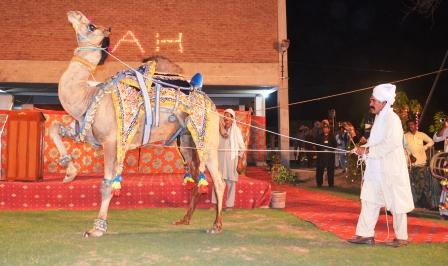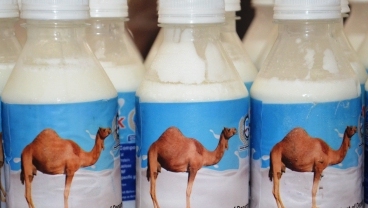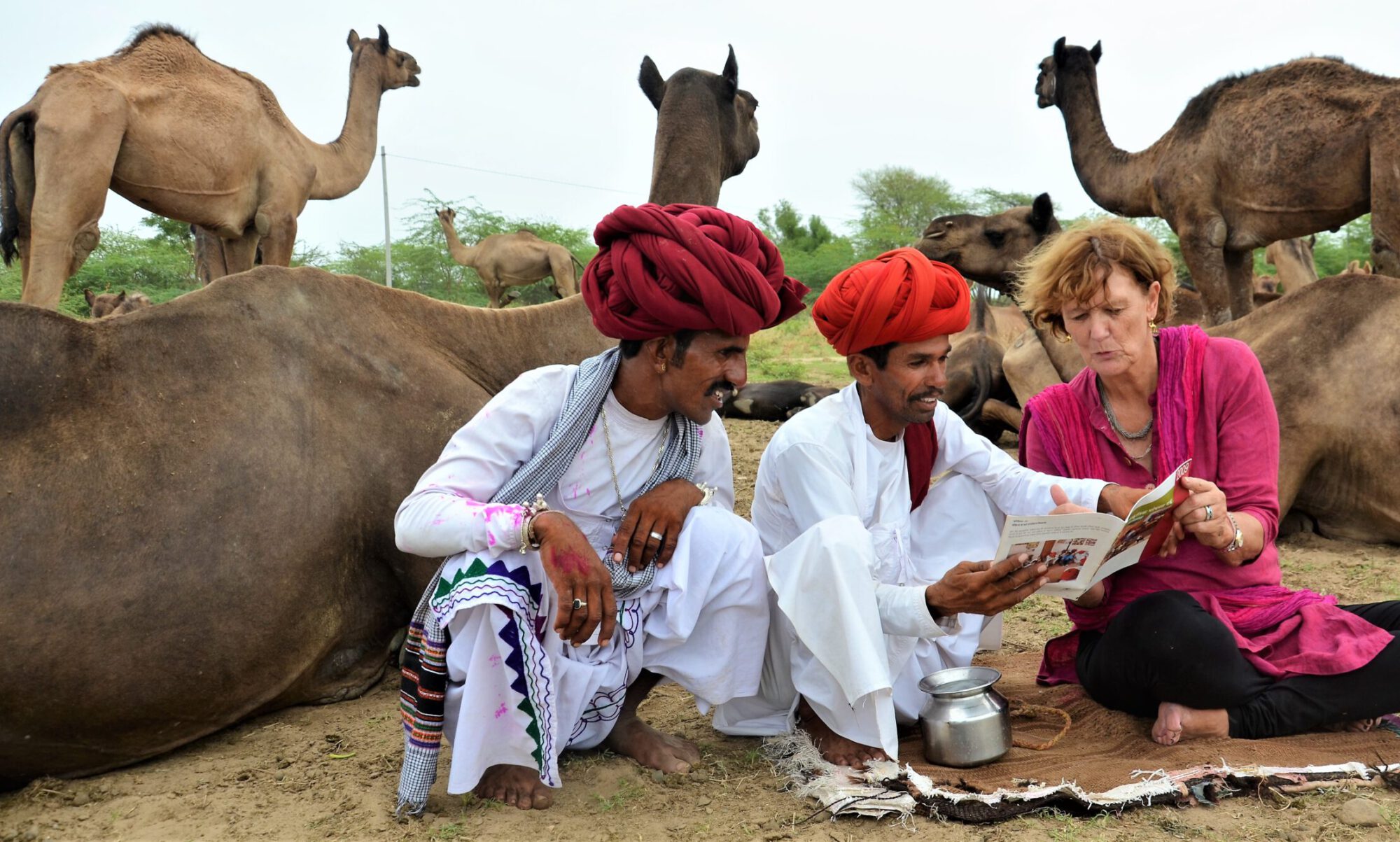 A few days ago I had the enormous pleasure to be hosted by Prof. Muhamed Younas, Chair of the Department of Livestock Management of the University of Agriculture in Faisalabad (Pakistan) for the celebration of World Camel Day on 22nd June. Initially conceived by my friend Dr. Abdul Raziq Kakar, a great camel researcher and currently dean at Lasbela Agricultural University, it was a grand event with dancing camels, scientific sessions and launch of the Dacha brand of camel milk.
A few days ago I had the enormous pleasure to be hosted by Prof. Muhamed Younas, Chair of the Department of Livestock Management of the University of Agriculture in Faisalabad (Pakistan) for the celebration of World Camel Day on 22nd June. Initially conceived by my friend Dr. Abdul Raziq Kakar, a great camel researcher and currently dean at Lasbela Agricultural University, it was a grand event with dancing camels, scientific sessions and launch of the Dacha brand of camel milk.

My brief visit proved extremely instructive for in this country camel numbers are on the increase with the current population being estimated at one million head. This trend is in stark contrast to the situation in neighbouring India where camel numbers have dropped to around 200,000, according to inofficial sources – more than 50% in the last five years!
Why is the scenario in Pakistan so different from India, I asked myself and the reasons were not difficult to identify: Pakistan is a nation of meat eaters and the demand for camel meat is strong – I was told that if camel meat is available at any butcher’s shop, word spreads quickly and it is immediately sold out. Secondly, Pakistan exports a large number of dairy camels to the Gulf countries at very remunerative rates. Both situations generate lucrative income for camel breeders, creating incentives to keep breeeding camels. An interesting nugget of information was shared by Dr. Raziq: by means of a Biocultural Protocol (an approach promoted by my organisation LPP and by the LIFE Network for securing the assets of livestock keepers), the awareness of the camel breeding community in Cholistan was raised about the value of their genetic resources and they are now able to negotiate for much higher prices with the Arab buyers – ranging from 250,000 to even one million Pakistani Rupees. The sale of even one good dairy camel enables some of the previously poorest nomads to purchase a piece of land and totally transform their economic status.
While this is great, I find it extremely worrying that all the best dairy camel genetics are either ending up in the Gulf countries or becoming extinct in India. Why are there no serious efforts to develop the potential of camels in South Asia for food production locally and inproving the lot of some of the poorest people in rural areas? Of course, establishing the camel dairy industry in Dubai (such as Camelicious) and other countries in the area was a question of massive investment which was provided by the deep pockets of Arab potentates. But couldn’t for instance the Indian government – or some of the larger donor and aid agencies – encourage and support public-private partnerships to get camel dairying going? The benefits accruing could be rather significant: it would place value on Indian camels that are currently wasting away because of neglect, absence of veterinary care, closure of grazing areas and, most importantly, lack of a market. Such an approach would be vastly more promising than placing a ban on the export of camels from Rajasthan and India and prohibiting the slaughter of camels – the measures currently adopted by the Rajasthan government for saving the camel.
While the attention of Rajasthan’s government to the issue of camel decline is laudable, it would be well advised to look into fostering (social) entrepreneurial engagement in which camel breeders are the main stakeholders, but backed up by sound business strategies and complemented with supportive policies that ensure grazing for camels.


 Follow
Follow
We love Camels have 22 of them and would have loved to share world camel day with you all. we are in Dallas, Texas